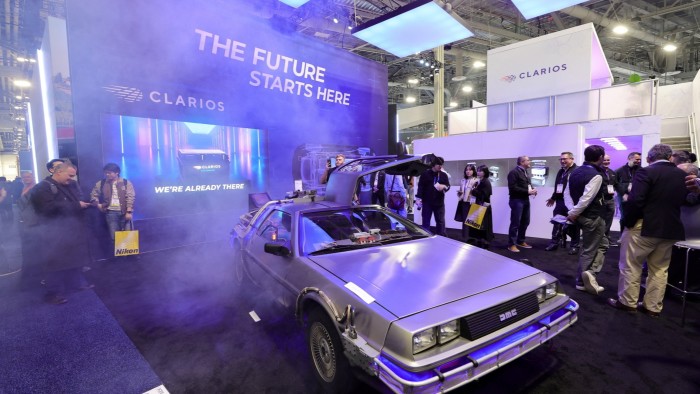Unlock the Editor’s Digest for free
Roula Khalaf, Editor of the FT, selects her favourite stories in this weekly newsletter.
Investors have piled into a bond and loan deal that will hand private equity giant Brookfield a huge $4.5bn dividend, overcoming fears from some money managers that Donald Trump could torpedo a tax break for the company issuing the debt.
The deal is likely to rank among the largest dividend recapitalisations ever completed by a leveraged buyout group, according to PitchBook LCD.
Clarios, a battery maker owned by Brookfield and Canadian pension fund CDPQ, raised $5bn this week in a sign that lenders do not expect the next US president to axe the subsidies in Joe Biden’s marquee Inflation Reduction Act, a move that would put Clarios’s finances at risk.
Clarios was a beneficiary of the IRA, which provides tax credits to companies making batteries in the US. The company makes about a third of the world’s low-voltage car batteries and expected to receive a $1bn benefit in 2024, as well as big tax savings in the coming decade, boosting profits and providing a large dividend to its owners.
But investors have questioned the permanence of those tax breaks during meetings with banks marketing the debt, according to people familiar with the calls. Without the IRA credits, they said the company’s leverage — a measure of its indebtedness compared with its profitability — would look particularly high.
“Even if you take the credit out, [the business] still works,” said one high-yield portfolio manager. “It will still generate cash — but it’s highly leveraged.”
An investor presentation seen by the Financial Times indicated leverage would rise to six times the company’s annual earnings if the tax breaks were scrapped, compared with four times if they remained intact.
President Biden’s landmark climate law included $370bn in subsidies, tax breaks and grants, making the US one of the world’s most attractive destinations for cleantech manufacturing.
Trump, who will be inaugurated into office next week, has vowed to gut key parts of the IRA, which he calls the “green new scam”, injecting uncertainty for cleantech investors.
Analysts with the rating agency S&P Global warned that they would downgrade Clarios’s credit ratings deep into junk territory if it lost its IRA tax break.
The $5bn capital raise will be a boon to investors in Brookfield funds, given private equity firms have struggled to exit investments and return cash to their limited partners over the past three years.
Brookfield’s investors, including CDPQ, will receive a total of $4.5bn in dividends from Clarios, about 1.6 times their original $2.9bn equity investment when they bought the company from industrial conglomerate Johnson Controls in 2019, according to people briefed on the matter.
Clarios will use some of the proceeds from the debt offering to pay down some loans maturing in 2026, according to investors familiar with the transaction.
Brookfield considered selling a minority equity stake in Clarios to large investors such as sovereign wealth funds, but found that buoyant debt markets made the dividend an appealing way to return billions in cash while retaining full ownership.
Demand for the debt was so high that banks increased the size of the capital raise by $500mn to $5bn. Clarios secured a $3.5bn loan that carried an interest rate 2.75 percentage points above the floating interest rate benchmark, or about 7.05 per cent. It also raised a $700mn bond and was finalising a further €800mn loan on Wednesday.
Brookfield declined to comment.
The new deal follows a roughly $9bn dividend raised last year by Belron, a windscreen repair company backed by Clayton Dubilier & Rice, Hellman & Friedman, BlackRock and GIC.
Additional reporting by Amanda Chu
Read the full article here

